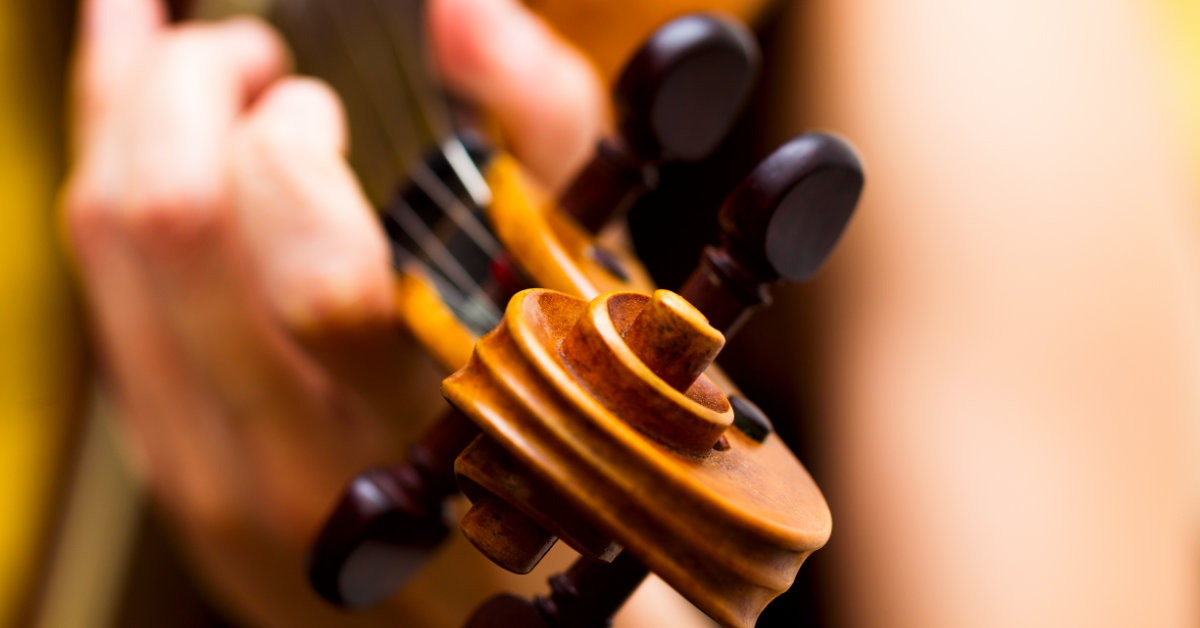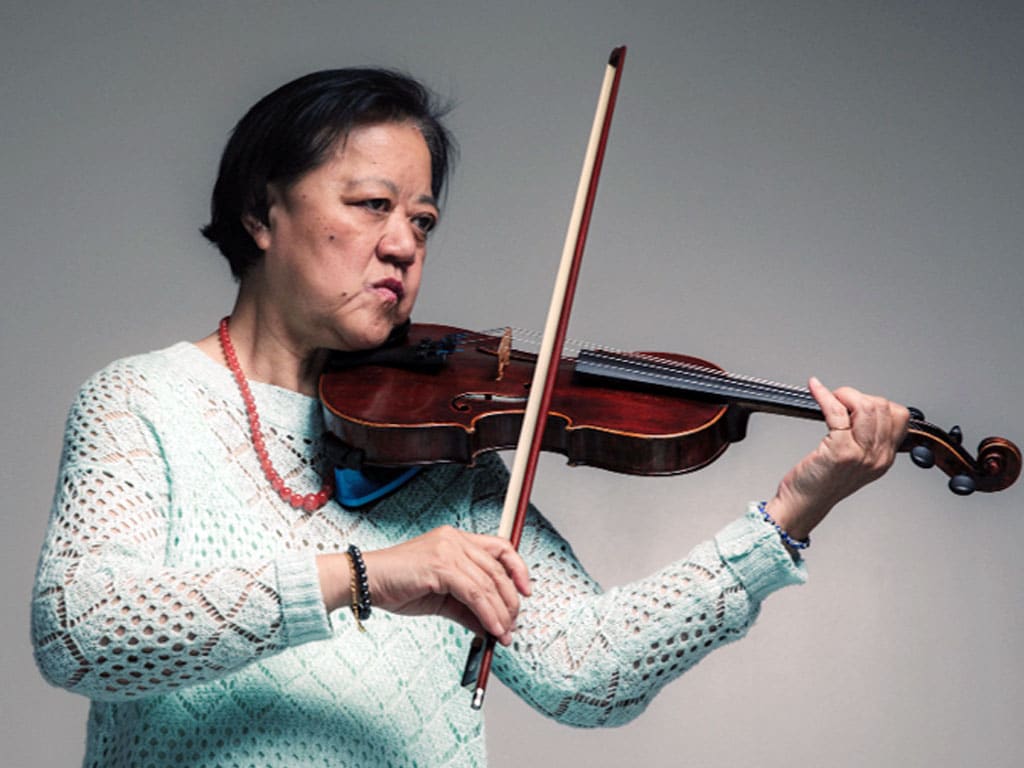

Learning the Language of Music – A Student’s Perspective
THE JOY OF MAKING MUSIC IS PRECEDED BY HOURS AND HOURS OF WORK.
THE EXPERIENCE OF THAT WORK, AND ITS MEANING TO THE MUSICIAN, IS NICELY ARTICULATED BY COS STUDENT ANTONIA BENTEL IN HER ESSAY BELOW:
"Why I Perform: A Personal Perspective"
Ever since I was little, music has played a major part in my life. While I focus my musical knowledge and abilities on many instruments, I especially owe my ability to understand and connect with a piece of music to one instrument in particular: the violin.
Whenever I perform on the violin, I feel as if I am soaring through the music in front of me. I am no longer in my own world, but inside the world of the composer - or at least the world they have created in their music. I ask myself, "What was this composer thinking when writing this? Were they trying to express gloominess, cheerfulness, elation, or loss?" When I finally decipher the composer's thoughts and intentions on the emotion of the piece, I often have the sense that the composer was able to write that piece of music because he or she lived their life thoughtfully, with meaning and purpose. They were portraying their experience of life's saddest or happiest moments in the composition. And, because they have put so much of themselves into their composition, I feel as if I would be disrespectful if I did not do the same when bringing their music to life.
For me, when a composer writes a piece of music, he or she is attempting to speak to the performer about life experiences and memories through the music. Each composer whose music I perform is asking me to reveal the emotional content embedded in their work. This means that, as a performer, I must respect their point-of-view as they have expressed it in their piece by conveying their intended meaning to the audience for whom I am playing. I act as an interpreter for the composer, trying to use all of my skill and intelligence to express their meaning through the sounds I make.
It is not as if it is easy, though - at least not for me. In order to reach the level of understanding of a piece of music that I feel I must have in order to convey the composer's intentions, I have to practice many hours every day. I have the crucial guidance of an excellent musician as my teacher. Since I am a young musician, it is painfully clear to me that I do not yet have the ability to play every piece that I confront as soon as I see it. Each new piece requires at least a few new skills that I have to learn before I can even think about trying to convey the composer's meaning. It reminds me of reading a book in French - I have to learn new grammar and vocabulary at the same time I am trying to understand the author's meaning. This requires a lot of re-reading of passages as I learn new aspects of the language the author is using, so that I can slowly begin to understand the full meaning of his or her words. It is the same with music - I need to re-play passages over and over while slowly acquiring a deeper understanding of the piece.
This is not always a beautiful process to watch or listen to. My dog Puccini usually hides in our dining room to get away from the racket I am making. In fact, I can sometimes tell that I have made progress when he no longer disappears if I start to rehearse. If my dog sticks around when I am playing, then I know that it is time to start playing the piece for a human audience to see if I am getting the composer's meaning across to them. I take their comments - even their appearance while I am playing - into account so I can learn where I need to improve my interpretation. Perfection is not my goal, however. Getting to the essence of the meaning of the piece so that I can clearly express its emotional content as I understand it is my ultimate goal. If I can convey what I believe the composer intended to 'say', then I have acted as a successful 'conduit' between the audience and the composer. For me, that is why I perform.
--Antonia Bentel
May, 2011



